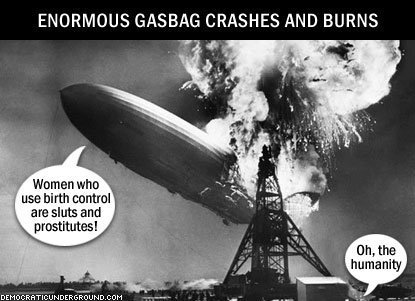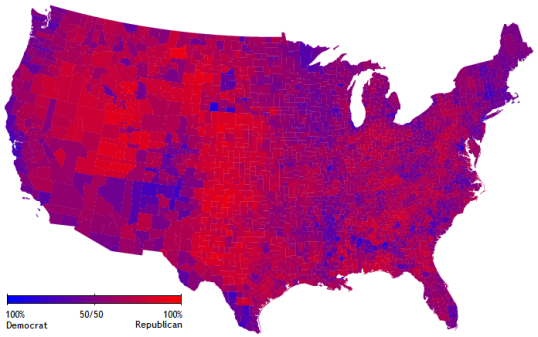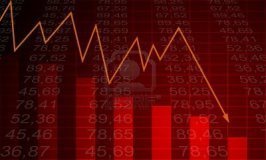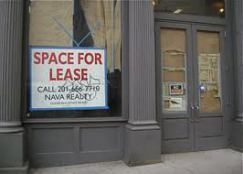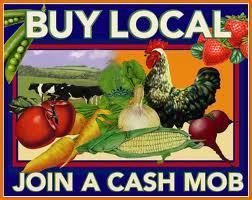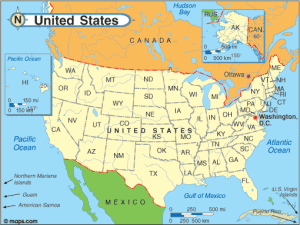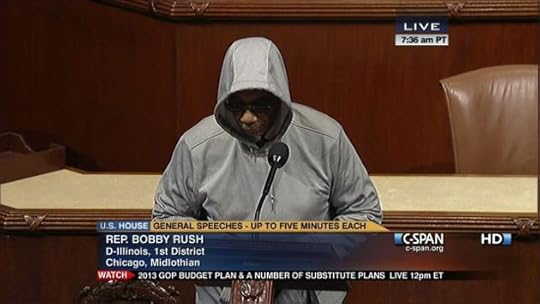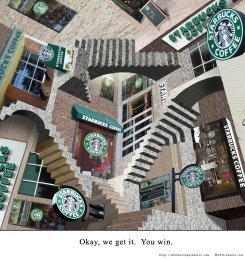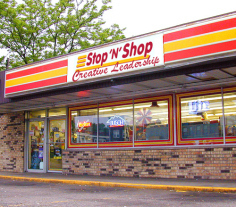Alon Shalev's Blog, page 43
April 10, 2012
Freeway Isolation and Gas Bag Inflation – Tom Rossi
California is an interesting place, politically I mean. Geographically, there is a whole lot more land area where conservatives are in the majority. It's in the areas of concentrated population – the Bay Area, Los Angeles – where people tend to vote in their own favor (to whatever degree possible) rather than in favor of corporations and the super rich.
This week I drove deep into conservative territory – central California, where agriculture is king. All the radio stations change as you head into the San Joaquin Valley and there's not so much variety. Faced with the total lack of any kind of jazz music, I found myself listening to none other than the big gas-bag himself – Rush Limbaugh.
It had been a while since I last was subjected to Rush (it really burns my butt that the name of one of my favorite rock bands is now synonymous with cretinous drivel) and I listened for most of an hour. I have to admit, I was smiling and laughing pretty much the entire time.
On this particular day, Limbaugh added the Center for Science in the Public Interest to his usual vilifying rants about President Obama and the terrible things he does to America. Debating the details of his blithering blather aren't really important. It's not important to have a long discussion with a four-year-old about why one plus one is two and not three.
But this was "call-in day" when listeners can call in and profess that they agree that one plus one is three. I wondered how the callers could take this stuff so seriously and even enjoy it – and not sarcastically, like me. Each caller started with something like, "I love your show" or "I've been a fan for years."
While my mind drifted and I watched the cars around me, going down the freeway, I began to think about how cars tend to separate us from each other.
In most areas of California, people spend huge proportions of their lives in cars, much of that time alone. But it's not just that they are alone; it's that they are isolated. Their thoughts, sometimes spoken out loud to the empty seat beside them, are unchecked by any social interaction.
When you are isolated, you can easily go down a narrative path that is neither algorithmic nor logical, but there is no one to point that out.
During the 2008 election circus, if you were on the road, alone, and you heard some genius on AM radio say that Barack Obama is a terrorist, and you didn't think of this question yourself, there would have been no one next to you to ask, "What does that mean? Do these people think that Obama would plant a bomb in the White House? Or on Capitol Hill? Is that really what these people think?"
I grew up in a car town, surrounded by other car towns. There was little public transportation and I almost never saw anyone walking. People drove their cars everywhere, all the time, then drove directly into their garages, never having to suffer the burden of actually talking to their neighbors.
It's easy, in these circumstances, to feel separate and dependent only upon yourself and your family. It's easy to start thinking that the "others" are only competition for what you want: money and resources of various kinds. It's easy to think of yourself as a downhill skier rather than a member of a hockey, basketball, or football team.
Something strange happens when you literally rub shoulders with your fellow astronauts on spaceship Earth – they actually begin to feel human.
It seems that isolation from a wide sample of people, whether in fact due to time spent in cars or something else, correlates better with voting habits than does any other factor except possibly wealth. If you look at the map, from the 2004 presidential election, of where people voted Democrat versus Republican, Democratic voters were located in places with high population density – New York City, San Francisco, Miami, Denver, Seattle, Baltimore, etc.
Ideas, opinions… thoughts of many kinds cry out for discussion. We are a gregarious species and we work better together.
-Tom Rossi
___________________________________________________________________________
Tom Rossi is a commentator on politics and social issues. He is a Ph.D. student in International Sustainable Development, concentrating in natural resource and economic policy. Tom greatly enjoys a hearty debate, especially over a hearty pint of Guinness.
___________________________________________________________________________

Freeway Isolasion and Gas Bag Inflation
California is an interesting place, politically I mean. Geographically, there is a whole lot more land area where conservatives are in the majority. It's in the areas of concentrated population – the Bay Area, Los Angeles – where people tend to vote in their own favor (to whatever degree possible) rather than in favor of corporations and the super rich.
This week I drove deep into conservative territory – central California, where agriculture is king. All the radio stations change as you head into the San Joaquin Valley and there's not so much variety. Faced with the total lack of any kind of jazz music, I found myself listening to none other than the big gas-bag himself – Rush Limbaugh.
It had been a while since I last was subjected to Rush (it really burns my butt that the name of one of my favorite rock bands is now synonymous with cretinous drivel) and I listened for most of an hour. I have to admit, I was smiling and laughing pretty much the entire time.
On this particular day, Limbaugh added the Center for Science in the Public Interest to his usual vilifying rants about President Obama and the terrible things he does to America. Debating the details of his blithering blather aren't really important. It's not important to have a long discussion with a four-year-old about why one plus one is two and not three.
But this was "call-in day" when listeners can call in and profess that they agree that one plus one is three. I wondered how the callers could take this stuff so seriously and even enjoy it – and not sarcastically, like me. Each caller started with something like, "I love your show" or "I've been a fan for years."
While my mind drifted and I watched the cars around me, going down the freeway, I began to think about how cars tend to separate us from each other.
In most areas of California, people spend huge proportions of their lives in cars, much of that time alone. But it's not just that they are alone; it's that they are isolated. Their thoughts, sometimes spoken out loud to the empty seat beside them, are unchecked by any social interaction.
When you are isolated, you can easily go down a narrative path that is neither algorithmic nor logical, but there is no one to point that out.
During the 2008 election circus, if you were on the road, alone, and you heard some genius on AM radio say that Barrack Obama is a terrorist, and you didn't think of this question yourself, there would have been no one next to you to ask, "What does that mean? Do these people think that Obama would plant a bomb in the White House? Or on Capitol Hill? Is that really what these people think?"
I grew up in a car town, surrounded by other car towns. There was little public transportation and I almost never saw anyone walking. People drove their cars everywhere, all the time, then drove directly into their garages, never having to suffer the burden of actually talking to their neighbors.
It's easy, in these circumstances, to feel separate and dependent only upon yourself and your family. It's easy to start thinking that the "others" are only competition for what you want: money and resources of various kinds. It's easy to think of yourself as a downhill skier rather than a member of a hockey, basketball, or football team.
Something strange happens when you literally rub shoulders with your fellow astronauts on spaceship Earth – they actually begin to feel human.
It seems that isolation from a wide sample of people, whether in fact due to time spent in cars or something else, correlates better with voting habits than does any other factor except possibly wealth. If you look at the map, from the 2004 presidential election, of where people voted Democrat versus Republican, Democratic voters were located in places with high population density – New York City, San Francisco, Miami, Denver, Seattle, Baltimore, etc.
Ideas, opinions… thoughts of many kinds cry out for discussion. We are a gregarious species and we work better together.
-Tom Rossi
___________________________________________________________________________
Tom Rossi is a commentator on politics and social issues. He is a Ph.D. student in International Sustainable Development, concentrating in natural resource and economic policy. Tom greatly enjoys a hearty debate, especially over a hearty pint of Guinness.
___________________________________________________________________________

April 9, 2012
Business Dust Bowl – Norman Weekes
"On a scale from one to ten, how's business been in the last year?" I asked. I was a membership representative door to business door in San Mateo County for a small business lobby group. As part of the sales pitch I'd ask business owners about their business performance.
Based on the appearance of the business, the lack of employee's or the silence in the business (no productivity) I would amend the question. "How's business?" Awful, horrible, never seen anything like this in (pick one) 20, 30, 40 years of business was the frequent answer. More than I care to remember a business owner would tell me they were closing the doors, "retiring" or hoping to go back to work for "the man."
Small business owners are the forgotten victims of the great recession. It's easy to forget them. How many of us can relate to the backbone of our economy? How many of us have started or closed a business? How many of us have the inherent qualities (balls) to start a serious business? What's a serious business? A business where the collateral backing the business is your house, property, cash, personal credit or other assets you've accumulated through honest hard work: a business where you haven't taken a paycheck to keep the doors open. A business where you've laid off employees whose families attended the Christmas party months before. That's serious business.
Two restaurants where I live in Castro Valley recently closed. One closure in particular caught many locals by surprise. JD's was known for the best breakfast in town and has been family-owned since the seventies. "For lease" and "Available" signs dot the business landscape like tombstones marking the precise location of a deceased dream. On a positive note people have come together to use social media to organize cash mobs but it will take more than feel good to stop this carnage.
Small business owners are the last heroes standing of capitalism. They take more risks, hire more people and contribute more to communities than big business ever will or care to. They are not people as defined by the Supreme Court, but people like you and me.
So the next time rich politicians debate or talk about the economy listen for what they're doing for the people in the 99% who happen to own a business. Listen hard for the sound of silence.
——————————————————————————————————
Norman Weekes is a volunteer in social justice non profits, account executive looking for work and occasional political activist.

April 6, 2012
Everyone Needs A Passover
Tonight, Jews all over the world will sit around the family table (possibly an extended table), recount the story of how our people were emancipated from slavery and eat a meal full of strange dishes. In case it sounds too hellish – we also drink four cups of wine.
Passover is all about freedom and, as such, has a universal message. It is difficult to celebrate your own freedom when you know that there are others who are still denied theirs. Though it seems to be happening in faraway lands, the interconnectedness of our world makes this premise inaccurate. Many of the clothes and shoes we wear, perhaps even the fancy electronics we need, are made by children, women and men who are little more than slave. Even close to home, human trafficking is happening in each of our cities.
This makes Passover a challenge. It is bittersweet, like the Hillel sandwich that we will eat (a sweet charoseth mix of fruits and honey together with bitter horseradish between two pieces of matzo), and we must strike a balance, remembering those who still strive for the victory and emancipation that we celebrate while enjoying the family-orientated festival with joy, appreciation and laughter. Here is my offering:
Every year, as Passover approaches, we Jews promise not to buy too much matzo. We have to eat it for a week, we don't want any left over. And every year as Passover comes to a close, we stare at several unopened boxes that sit on the shelf taunting us.
There are, however, plenty of creative solutions. Don't believe me? Ask talented singer, Michelle Citrin:
——————————————————————————————————
Alon Shalev is the author of The Accidental Activist and A Gardener's Tale. He is the Executive Director of the San Francisco Hillel Foundation, a non-profit that provides spiritual and social justice opportunities to Jewish students in the Bay Area. More on Alon Shalev at http://www.alonshalev.com/ and on Twitter (@alonshalevsf).
April 5, 2012
Give Global Warming a Hug – Roger Ingalls
We, the believers, need to embrace global warming; we need to wrap our arms around it and give it a big hug. It's here to stay. We should no longer waste time on climate deniers in hopes of creating a cooperative effort to reduce the activities that are causing the change.

picture from: careforchildrennow.wordpress.com
The deniers are obstructionists that fall in to two categories. Group One subscribes to an authoritarian ideology and follows the rhetoric of the second group without question. Group Two deniers are the leaders and the devious ones. They are corporate-hired guns typically from the political and special-interest arena on a mission to spread fear, uncertainty and doubt – or what we call FUD in the business world.
FUD is a powerful tactic when your audience is an authoritarian-minded followship that doesn't use intellectual reasoning. This is why Republican leaders started using FUD twenty years ago; it's a perfect vice for the members of their party.
It's important to understand that deniers are a strong coalition of obstructionists not wanting to engage in any activity which is disruptive to the current power structure. It is not in the best interest of the corporations to endorse environmentally friendly regulations or innovative technologies that could substitute and obsolete their market position.
The current power base controls most of the world's wealth. They own the politicians, a majority of the Supreme Court Justices, and have an army of drones. They can not be beaten so let's not waste our time.
A warmer planet and the activities that are creating it are here to stay. We need to spend our intellectual energy creating an economy that allows us to survive and prosper in the chaos of a warmer world.
Endorse the reality – we need to adapt. Extinction is the alternative.
—————————————————–
Roger Ingalls is well traveled and has seen the good and bad of many foreign governments. He hopes his blogging will encourage readers to think more deeply about the American political system and its impact on US citizens and the international community.








April 4, 2012
Focus On The Real Issue
What is it with the American press, politicians and the rest of us! Why are we able to discuss every aspect of an issue except the core problem or conflict. I am guilty too. On Monday, I chose to focus on Congressman Rush getting kicked out of the House and even turned to my most trusted source, John Stewart on the The Daily Show.

Congressman Bobby Rush in the House
Mr. Stewart actually isn't as guilty as the rest of us. He makes his living though satire (and does it exceedingly well, I might add). He is permitted to comb any situation and find a humorous angle to highlight. The rest of us shouldn't.
It sometimes needs a quality journalist or social commentator to remind us of this. Thank you, Gail Collins for reminding us. Her op-ed in the New York Times, More Guns Less Hoodies, was excellent, and though I am going to lift a few choice paragraphs, her article is worth reading right through.
This is not about the right to wear a hoodie. The hoodie is nothing more than a symbol for racial profiling. "Just because someone wears a hoodie does not make them a hoodlum," a hooded Congressman Rush stated before being served a double technical and sent for an early showers.
Ms. Collins: "This is pretty much par for the course. Whenever there is a terrible shooting incident somewhere in America, our politicians talk about everything except whether the tragedy could have been avoided if the gunman had not been allowed to carry a firearm.
"You would think that this would be a great time to address the question of handgun proliferation, but it has hardly come up in Washington at all. This is because most politicians are terrified of the National Rifle Association. Also, the small band of gun control advocates are busy with slightly less sweeping issues, such as their ongoing but still utterly futile effort to make it illegal to sell a weapon to anyone on the terror watch list."
But there is little discussion about gun control. Ms. Collins has argued gun control in the past and admits to feeling jaded. Many people just accept that there are certain interest groups that are untouchable. They are so well funded, so well organized, that they are simply impervious.
Ms. Collins chooses to highlight the discussion on carrying guns legally between states. If you have a license in one state, you can take it into many others. Ms. Collins concedes that Geraldo Rivera could walk with his gun around Time Square and many other vulnerable sites packed with citizens. In a country that has instituted many laws curbing citizen's rights in the name of Homeland Security, this is patently absurd.
I am new to the topic of gun law. There is something far deeper in the American psyche that I, as a relative outsider, am having trouble grappling with. As left as my politics go, I am keenly aware of the danger of terrorism and willing to have some of my rights curbed for what is, ultimately, the protection of my family, community and myself.
But this is the same reasoning that doesn't want almost anyone to walk around thinking he has the right to take a life in anything but the clearest scenario of self defense. We have one police force. They are trained and clearly defined by uniform and procedures. They might not be perfect and we might want to demand improvements and more policemen and women on the streets, but this is the nature of democracy.
No one has a right to walk around with a gun and play God. And everyone has a right to walk the streets without fear of fellow man or woman, regardless of a person's gender, race, or sexual orientation. This is what makes America great, not the false fear that a gun on your hip makes for a safer society.
——————————————————————————————————
Alon Shalev is the author of The Accidental Activist and A Gardener's Tale. He is the Executive Director of the San Francisco Hillel Foundation, a non-profit that provides spiritual and social justice opportunities to Jewish students in the Bay Area. More on Alon Shalev at http://www.alonshalev.com/ and on Twitter (@alonshalevsf).








April 3, 2012
What's One Thing Wrong With Our Government? Geography. – Tom Rossi
Once again, I'm going to key off of one of Roger Ingall's posts. If you're thinking that this is only because he continues to have interesting ideas while I'm all dried up and can't do anything but copy… um, I can't think of a response right now.
In Roger's post on March 22, 2012, "Void the Senate," he calls for the elimination of the Senate, leaving only the House of Representatives in the legislative branch of the federal government. Roger knows very well that this is an intellectual exercise and that eliminating the Senate would be pretty much impossible, but his post brings up some worthy issues.
I agree that the Senate is not a good part of our government. Hmmmm…. What are the good parts? I'll have to get back to you on that. But I think the main problem that the Senate has is the same problem that the House of Representatives has, only on a different scale… and this time I'm not talking about the influence of big money. What I'm talking about is real estate.
No, not this kind of real estate:
This kind:
There are several reasons that representing geographical areas is not the best way for a government to operate. For one thing, if 51% of the people in an area vote in a particular direction, then that's a majority and their will will rule. That leaves 49% of those people essentially unrepresented, as if they just don't count.
Another reason the Senate is an inappropriate part of our government was actually a subject of debate during the Continental Congress which created our constitution in the first place. Senators literally represent pieces of land with political/administrative boundaries – states. That means that Wyoming has just as much say in the Senate as does California.
The population of the state of California was 37,253,956 in 2010, making it the most populous state in the nation. The population of Wyoming in 2010 was 563,626, (36,690,330 fewer people than California) and is the 50th most populous state.
You might think I have something against Wyoming, but I certainly don't. With the notable exeption of Dick Cheney, Wyoming is largely full of friendly, polite, good natured people. Driving through southern Wyoming one time, I discovered that people actually wave to you through the windshields of their cars. And at the time I had Colorado plates on my car! I must have seemed like a rude jerk to the first few people, before I caught on.
No, it has nothing to do with who is represented in the Senate. My complaint is that the land area that is defined as Wyoming has two Senators, as does the land area defined as California. Therefore, in the Senate, the people of Wyoming are vastly overrepresented while the people of California are vastly underrepresented.
However, even if we did (somehow) eliminate the Senate, another real estate problem would still exist. Congressional Districts are based on population, but are still a specific area on the map. So, what Representatives are motivated to do is to bring money (which ostensibly brings jobs as well) into that area.
That sounds great, but it is exactly what has led to our incredible national debt. Representatives vote for almost anything that will bring money into their districts. A good example is the B2 bomber, one of the worst spending fiascos in U.S. History.
The B2 bomber is built from components manufactured in every U.S. state, including many different Congressional districts. This dissemination of the manufacturing and the money that went with it served as a lure to get the votes of Representatives and Senators alike, who are always thinking about the next campaign.
The constituents largely voted for the incumbent because he or she brought money and jobs to their district, and the U.S. got a shiny new $45 billion plane project. These days, that doesn't sound like so much, at least compared to the epic waste of the Iraq war. But think of all the teachers' jobs that could be saved with that money.
What's my version of the impossible dream of reorganizing the U.S. government? Since geography, appropriate in the 19th century, is now obsolete, let's instead elect on ideology. An example is the farmer's party in Denmark. This party was organized in 1923 to represent the interests of farmers across the small nation.
If we got rid of our "winner take all" mentality and our addictiton to geography, people would have more choices and opportunities to express themselves politically. The semi-monopoly of our current two dominant parties could be obliterated and people could truly vote the way they would choose, instead of being held hostage to a sometimes ridiculous and self contradictory package.
The U.S. Green Party advocates a system that addresses some of the problems I listed here known as "proportional representation." It would mean that the 49% (or less) would be represented by 49% of the government instead of being shut out entirely. It's worth thinking about.
-Tom Rossi
___________________________________________________________________________
Tom Rossi is a commentator on politics and social issues. He is a Ph.D. student in International Sustainable Development, concentrating in natural resource and economic policy. Tom greatly enjoys a hearty debate, especially over a hearty pint of Guinness.
___________________________________________________________________________








April 2, 2012
Bobby Rush – Technical Foul But Great Respect
Last week, Illinois Rep. Bobby Rush, a Democratic Congressman, was ordered to leave the House chamber because he was dressed inappropriately. Rush was wearing a hooded sweatshirt in honor of Trayvon Martin.
The Congressman stood and commenced his speech in a suit jacket, but removed it revealing a hoodie underneath. "Racial profiling has to stop," Rush said. "Just because someone wears a hoodie, [it] does not make them a hoodlum."
It's against House rules to wear headgear in the chamber.
I want to tip my hat (or other headgear) at Congressman Rush – he had a point to make and the use of props (not unknown in the house) made it all the more prominent – hit the TV shows and even gave the Congressman his deserved debut slot on Left Coast Voices.
Check out the clip from The Daily Show – sometimes satire is work a thousand blog posts.
http://www.thedailyshow.com/full-epis...
——————————————————————————————————
Alon Shalev is the author of The Accidental Activist and A Gardener's Tale. He is the Executive Director of the San Francisco Hillel Foundation, a non-profit that provides spiritual and social justice opportunities to Jewish students in the Bay Area. More on Alon Shalev at http://www.alonshalev.com/ and on Twitter (@alonshalevsf).








March 30, 2012
Starbucks Stand Their Grounds
From the MoveOn.org website (I have added the pictures):
Starbucks stuck their neck out to publicly support the right of all people to marry, regardless of the gender of their partner.
Now it is under attack by the ironically named, ultra-conservative "National Organization for Marriage". Already over 10,000 NOM members have pledged to boycott Starbucks. We don't want to just criticize corporations when they do bad. We want to encourage them when they do good. So we're going to blow the opposition out of the water by getting more than ten times as many people to thank Starbucks for standing up for gay marriage.
Show your support for Starbucks by signing our giant Thank You card.
A compiled petition with your individual comment will be presented to Starbucks.
Here are a couple of blogs that I have written about Starbucks or coffee in the past – in case you are looking for something to read with your low-fat, extra-whip, slightly agitated…oh never mind!:
——————————————————————————————————
Alon Shalev is the author of The Accidental Activist and A Gardener's Tale. He is the Executive Director of the San Francisco Hillel Foundation, a non-profit that provides spiritual and social justice opportunities to Jewish students in the Bay Area. More on Alon Shalev at http://www.alonshalev.com/ and on Twitter (@alonshalevsf).








March 29, 2012
Brainwashed in 3.5 Minutes (by Roger Ingalls)
The History Channel aired an interesting program a few days ago about the design of convenient stores. It's amazing how much thought goes into the layout of a 7-11 and other twenty-four hour quick turn stores. Their goal is to get you in and out within three and a half minutes while manipulating you into impulse buys. Convenient stores generate an amazing $1.7 billion every twenty-four hours.
After watching the program, I went online to find out more about retail and convenient store tricks that make us spend more money. Here are some of the manipulating tactics they use.
People usually go to a convenient store for a purpose which means they are headed for a destination in the store. Of course, there are common purposes for being in a 7-11, such as buying milk, soda and coffee. Impulse items are placed between the door and the destination item. This is why most of the stuff we want is in the back of the store.
If you grab a soda from a cooler at a Quik Stop, the cooler door is hinged to close in a way that directs you past more impulse items. For example, if the door swings open from left to right, you will more likely turn to your left when walking away so flashy products are place in that direction. Coffee is a huge seller at convenient stores. Donuts, bagels and breakfast sandwiches are grouped with coffee to entice you into making a package purchase.
Grocery stores are big manipulators too. All the basic real foods like milk, meat, bread, eggs and produce are place in the back and far sides of the store. You must walk past everything else to get to these staple foods. The meat section uses slightly tinted lights to make the items look pleasantly fresh. Did you ever wonder why produce is misted? It gives us a sense of freshness but it actually reduces the shelf-life. Additional produce tricks include displays that put fruits and veggies in crates along with signs resembling chalkboards to give them a farmers market feel even though they may have been trucked in from another country.
Grocery carts and flooring play a big role in how much money we spend. Stores that switch from small carts to larger ones see an average revenue increase of 37%. Have you noticed the trend to put kid carts in stores? Parents who bring their children spend 25% more than if the kids were left at home. Floors are also being modified with color changes every few feet or the physical texture changes to make us watch our step, look around and slow down. The slower pace correlates to a spending increase of 6%.
Even apparel stores are getting into the act. They put harsh lights and plain mirrors at the entrance and then put tinted mirrors and filtered lighting in dressing rooms. Once we are in the changing room, our appearance is improved giving the illusion that the clothing made the difference. Many retailers are also engaging in the practice of vanisizing where the sizes of the clothes are actually larger than what is on the tags. We can now fit into pants, dresses and shirts that were previously too small so we make a vanity feel-good buy.
There are many more tricks to get us to buy and spend; the more human behavior is understood, the longer the trickery list gets. I don't know…maybe I'm making a big ado about nothing. After all, the economy is driven by commerce.
But I just hate being manipulated!
——————————————————
Roger Ingalls is well traveled and has seen the good and bad of many foreign governments. He hopes his blogging will encourage readers to think more deeply about the American political system and its impact on US citizens and the international community.









